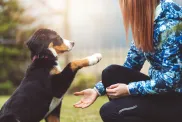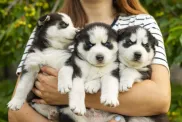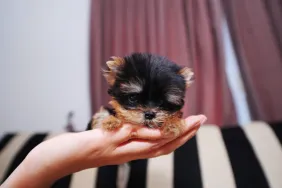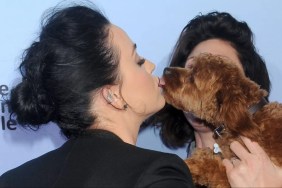The Taipei Times reports that a recent demand for red-coated Poodles is sweeping across Asia, resulting in a spike in birth defects due to bad breeding. The trend has led to a breeding boom, with backyard breeders selling unhealthy dogs to unsuspecting customers, and for top dollar, too — all because the puppies’ coats come in the desired copper hue.

The Kaohisung Concern for Stray Animals Association Chairwoman Wang Hsiao-hua explains the situation is becoming more common as the demand for designer dogs increases. Breeders looking for specific physical characteristics often end up with sickly or deformed pups. Wang says that dogs like these are virtually unsellable, and often end up on the streets to fend for themselves.
Luckily, at least one victim of the red Poodle trend won’t have to spend his potentially short life alone on the side of the road. Earlier this month, a man contacted the Kaohisung Concern for Stray Animals Association when his Poodle gave birth to a red-coated puppy with no eyes. He asked the organization to take the pup because he feared that other dog breeders looking to make a quick buck would choose to breed the eyeless Poodle for his coat color, resulting in more puppies with the genetic mutation.
The eyeless Poodle will likely remain at the organization for life, Wang says, because the chances someone would adopt a dog with such a severe defect are slim to none.
Feng Tsung-hung, head of the Hungli Animal Clinic, explains that one of the main reasons for genetic mutations is inbreeding, a practice that can result in weakened immune systems, shorter life spans, and physical deformities. Feng says that he has seen poorly-bred dogs born without eyes, missing legs, and many pups born with brain development issues.
“We don’t know how dog breeders deal with the pups born with birth defects and whether they keep them, administer euthanasia or cast them out on the street,” says Feng.
Breeding trends and health issues like this one aren’t limited to Asian countries; the “teacup” craze in the United States has created impossibly tiny pups, many with severe physical deformities and ailments. These “teacup” Chihuahuas, Maltese, Shih Tzu, and Yorkshire Terriers often end up with metabolic disorders such as hypoglycemia. Heart problems, brittle bones, epilepsy, and liver shunts are also fairly common. Dogs classified as “teacup” aren’t recognized by any reputable dog breed registries.









